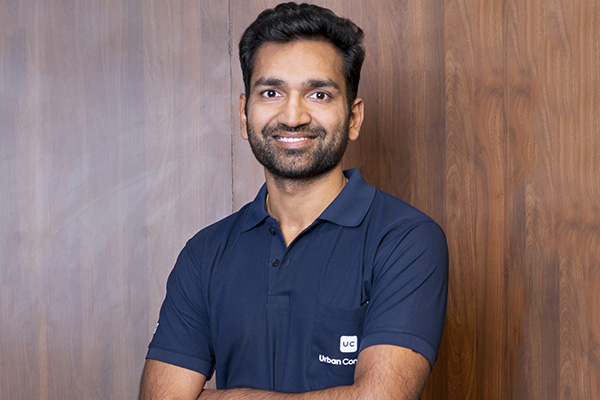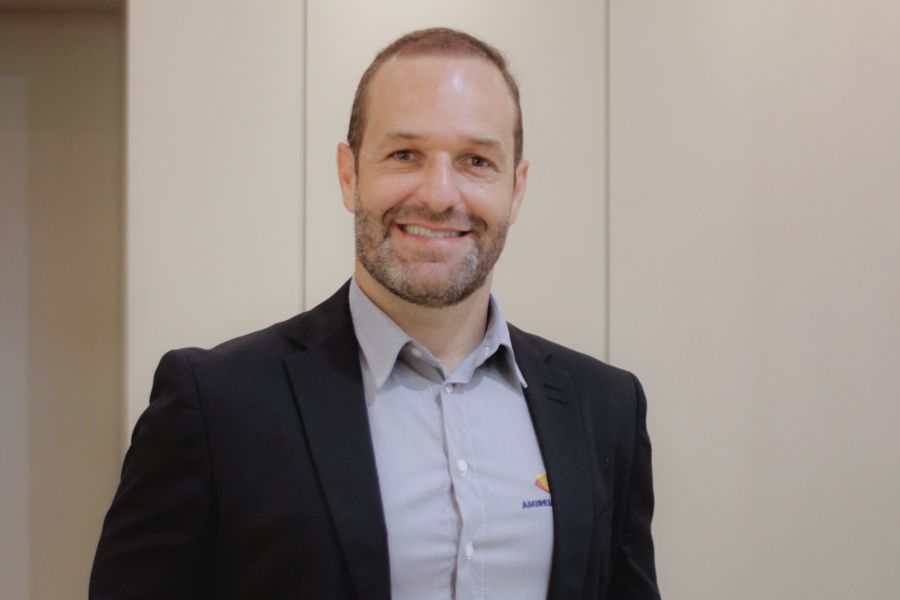“Urban Company has developed a full stack services platform”
Varun Khaitan, Co-founder, Urban Company, is confident of grabbing market share in the company’s core services of home care and personal care post-COVID, besides expanding to new opportunities like disinfection of homes and offices.

IBT: How has Urban Company’s presence in the on-demand home services market evolved since inception? What would you identify as key achievements by your company so far, in terms of competitive advantage, quality of the overall offering and business numbers?
Varun Khaitan: When we started Urban Company back in 2014, we were one among 300+ startups entering the on-demand home services market. However, I can confidently say, over the years, we have consolidated our position in the market.
Today, we are market leaders in the Beauty & Wellness and Home Repairs & Maintenance categories. The Beauty & Wellness category comprises salon and spa at home services for both men and women. The Home Repairs & Maintenance category comprises services offered by plumbers, electricians, carpenters, appliance technicians, home deep cleaners and painters.
Our key achievement is the quality of experience we provide at scale to our customers and service partners. Across all services above, customers get trained professionals to come home on-demand and the entire end to end experience (booking, on-time arrival, service process, products and tool used, pricing) is controlled and guaranteed by us. The platform has no middlemen, service partners attach themselves directly as entrepreneurs and get more respect from customers, multiple times higher earnings and a well-balanced life with more family time.
IBT: How is your business distributed geographically viz. urban centres vs tier 2, 3, 4 towns? How is this share expected to change in the coming 5-10 years and why? Similarly, how is it distributed by SEC class and who is your key target audience?
Varun Khaitan: In the past 18 months, we have opened offices in 10 tier II cities – Bhubaneswar, Chandigarh, Indore, Jaipur, Lucknow, Ludhiana, Nagpur, Surat, Visakhapatnam and Vadodara. Of these, we launched services in Bhubaneswar, Indore, Nagpur and Surat very recently in February 2020.
With this, we are now present in the top 18 cities of the country. The business is currently concentrated in the top 8 cities and I expect the new ones to have a larger share over time. Over the next 5 yrs we will expand our presence to the top 50 cities.
We have also expanded internationally and currently operate in the UAE, Singapore and Australia.
Our users predominantly have household income over Rs 10 lakh per year.
IBT: How has the on-demand services market in India evolved in comparison to other parts of the world? What are the key takeaways in terms of growth potential and business strategy, based on this benchmarking?
Varun Khaitan: While in some service industries like ride-hailing and food delivery, evolution in India is similar to other parts of the world, in home services the adoption of online platforms has been faster in India.
This is largely because the existing service ecosystem in India had more gaps and the approach taken by Urban Company has been different. It’s a full-stack approach where the platform ensures end-to-end control and good quality experience as opposed to most platforms in the west, which only introduce you to service professionals.
The opportunity to build a full stack services platform exists all over the world and that is the aim of our expansion. The full stack approach requires one to build an entire ecosystem of capabilities including standardization of services, training, financing, an internal supply chain of products and a lot of industry specific technology.
IBT: What are the opportunities and challenges in delivering services via e-commerce in India (for the metroes and the hinterland)? To what extent have you been able to tackle these challenges, and what are the focus areas going forward?
Varun Khaitan: The opportunities and challenges are much the same and so are the expectations in metros and elsewhere. The opportunity is to upgrade the quality of services and in a small meaningful way quality of life of the Indian consumer. With our personal and home services we want to help India take better care of self, be relaxed and have a happy home environment.
The main challenge is that the service industry in India is informal – there is widespread lack of price transparency and skilled professionals. We see a large opportunity in this – we set right prices for our services and run over 100 training centers which up-skill close to 2,000 professionals a month and bring them onto our platform.
The second challenge and core focus areas at Urban Company is trust and safety. We have a stringent 5-step onboarding process, wherein we do background verification of the potential partners, apart from skill and aptitude tests. With the COVID-19 outbreak, we have added an extra layer of safety and hygiene to our service delivery model.
IBT: How is the COVID-19 pandemic and the subsequent lockdown affecting your business? How do you view the overall impact through this year and the recovery curve?
Varun Khaitan: During the past 80 days of lockdown, we were closed for the first 20 days, then allowed to operate with some essential services such as home repairs and then all services since the beginning of June.
The business has rebounded strongly after the lockdown. There are segments like home repairs, which are close to pre-COVID levels and even those like men haircuts at home, which are already larger than previous levels. As more consumers prefer to consume services in the safety of their home and through organised platforms following safe practices, our business stands to gain.
To share some numbers, we have serviced and repaired appliances in 500,000 households since the lockdown was announced. We launched a wait list program during the lockdown and within 10 days, we had close to 1.5 lakh consumers sign up for those services.
The overall recovery curve for the economy is likely to be slow and stretch to the end of the year at the least, since we’re still in the pre-peak phase of the epidemic, and it will take a lot of time for both supply chains and demand sentiment to come back.
Our service partners have also been impacted and we’ve taken steps to support them. Soon after lockdown was announced, we extended advances of Rs 5,000/- to most of them to take care of families and continue to provide them health insurance, tele medicine support and assistance to return back to work.
IBT: What are the strategic expansion opportunities you envision in your portfolio of services, especially post-COVID? How are you changing your business model and approach to services post-COVID to sustain growth, overcome competition and meet customer expectations and concerns?
Varun Khaitan: The core of our platform – personal care and home care services – have both bounced back strongly. We see a large opportunity to grow and gain share in these by offering to consumers a safe reliable platform. Thus we are focusing and doubling down on our core services. In addition, we are also looking at new opportunities in adjacent areas like disinfection of homes and offices.
To adjust to the environment, we’ve moved our operations online. Now 80% of our service partner training is happening online and we’ve seen the effectiveness of the training to be at-par with classroom training.
Our key focus for this year is safety and hygienic services. We have done a complete and comprehensive revamp of our services to ensure 100% safety and hygiene as we deliver services at home. The changes have been implemented across 3 major areas:
A. Providing all necessary equipment to our professionals – which includes masks, santiziers, gloves, PPE suits, disposable products, shoe covers etc and ensuring their usage in every service
B. Health checks and support – all service partners are temperature checked daily, anyone unwell has access to tele-health checkups and health/income insurance against Covid-19
C. Service process – all beauty services use single-use cosmetics and towels and we’ve innovated on process of services like threading & facials to make them contactless
So far, we have spent close to Rs. 20 Cr under these projects in the past 2 months alone and plan to spend another Rs 20-25 crores over the year.













Leave a comment